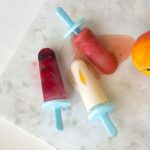What You Need to Know About Supplements

As a dietitian, people often ask me what supplements they should be taking. There are so many products out there and a lot of (often conflicting) information. The supplement industry boasts a whopping $122 billion (yes, billion with a “B”) annually. So today I’m sharing my top tips on deciding whether to incorporate supplements into your daily routine and how to figure out what you might need.
1. Food should ALWAYS be your first option.
Our bodies were designed to consume and digest real food, and eating real food can be so satisfying. Our society has largely diverted from real, whole foods in favor of “foods” in the processed, powdered, and pill varieties. The human body absorbs nutrients more efficiently from real foods than it does from a manufactured products. So if at all possible aim to eat at least 5 servings of different fruits and vegetables to get the adequate amounts of vitamins and minerals. For more information on foods versus supplements see this article from my sweet dietitian friend, Brittyn from Local Roots Dietitian Blog.
2. If you do supplement, figure out exactly what you need.
Before you start taking any supplement, make sure that you actually need it. If you take a supplement of a nutrient that you already have enough of, you will either : a) build up toxic levels of that nutrient and experience the subsequent side effects or b) excrete the excess (and waste money). You can always ask your doctor to test your blood levels to see if a supplement is even necessary. Vitamin D is a common deficiency in the US and may require supplementation. However, you can also get adequate vitamin D from sunlight depending on where you live. Always talk to your medical provider before starting a new supplement especially if you have a chronic illness or are taking any medications.
3. Know your sources.
Unfortunately, supplements fall under a different set of regulations than actual food products by the Food and Drug Administration. So basically, they aren’t as regulated. You have to be really careful about what you purchase and take. I always check the NSF Certified for Sport search engine when I am considering a new supplement. This organization tests supplements to make sure they are what they say they are and do not contain any banned substances. I also like to check the supplement’s website to see what kind of research and third party certifications it has.
Do you take any supplements? If so, what do you take? What brands do you like?






